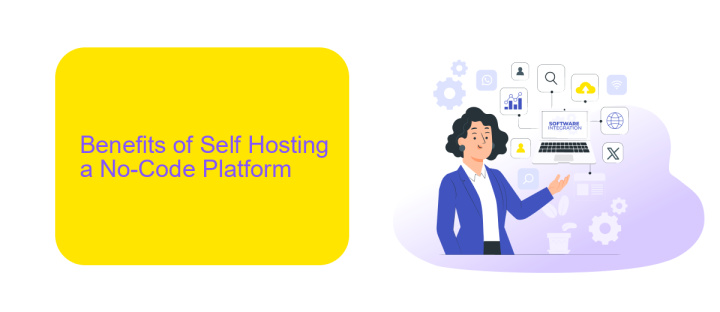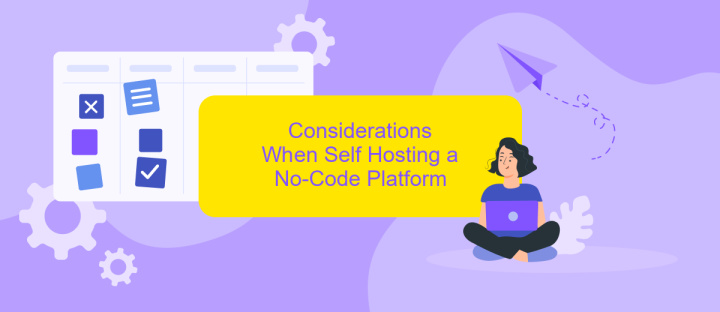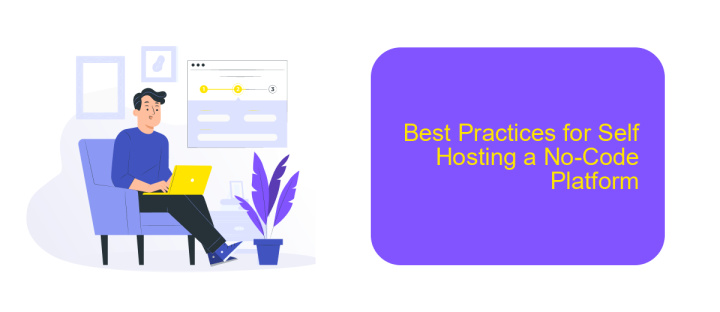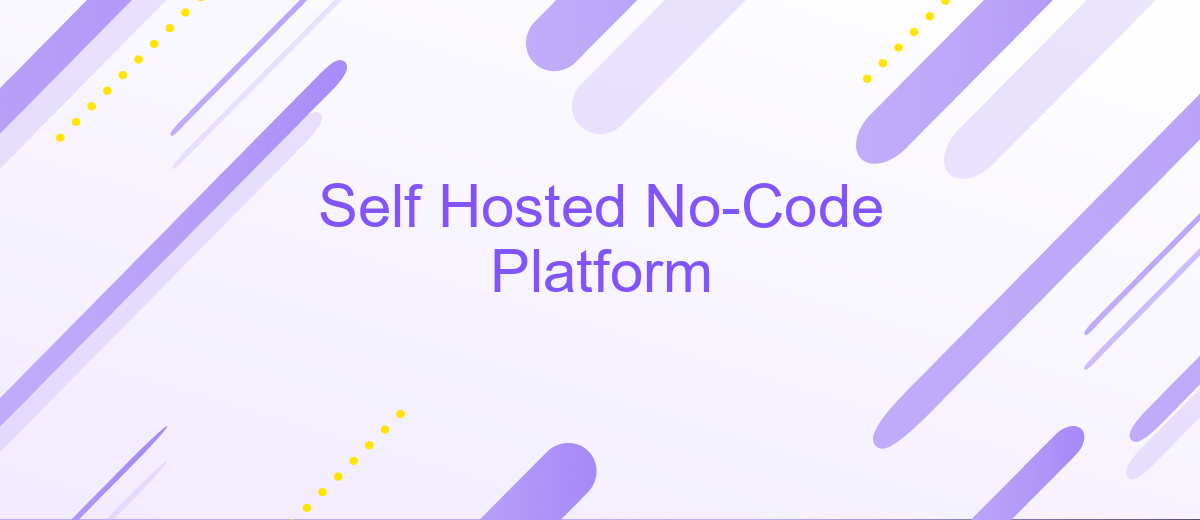Self Hosted No-Code Platform
In today's fast-paced digital world, businesses and individuals are increasingly seeking efficient ways to build and deploy applications without extensive coding knowledge. Self-hosted no-code platforms offer a powerful solution, enabling users to create, customize, and manage their software in-house. This article explores the benefits, features, and key considerations of adopting a self-hosted no-code platform for your development needs.
Introduction
In the digital age, businesses are increasingly seeking ways to streamline operations and reduce dependency on traditional coding. Self-hosted no-code platforms offer a powerful solution, enabling organizations to build and manage applications without requiring extensive programming knowledge. These platforms provide flexibility, control, and security, making them an attractive option for enterprises of all sizes.
- Empower non-technical users to create applications
- Reduce development time and costs
- Enhance data security and control
- Facilitate seamless integrations with existing systems
One critical aspect of self-hosted no-code platforms is their ability to integrate with various services and tools. For example, ApiX-Drive offers an efficient way to set up integrations, allowing users to connect different applications and automate workflows without writing a single line of code. By leveraging such services, businesses can optimize their processes, improve productivity, and maintain a competitive edge in the market.
Benefits of Self Hosting a No-Code Platform

Self-hosting a no-code platform offers unparalleled control and customization, allowing businesses to tailor their software environment to meet specific needs. Unlike cloud-hosted solutions, self-hosted platforms provide enhanced data security, as sensitive information is stored on private servers rather than third-party clouds. This ensures compliance with stringent data protection regulations and minimizes the risks associated with data breaches. Furthermore, self-hosting eliminates dependency on external service providers, granting uninterrupted access and operational continuity even during internet outages or provider downtimes.
Another significant advantage is the flexibility to integrate various tools and services seamlessly. For instance, using a service like ApiX-Drive, businesses can effortlessly connect their self-hosted no-code platform with other applications, automating workflows and enhancing productivity. ApiX-Drive simplifies the integration process, enabling users to set up connections without extensive technical knowledge. This empowers organizations to build a robust, interconnected ecosystem that supports their unique operational requirements, ultimately driving innovation and efficiency.
Considerations When Self Hosting a No-Code Platform

When considering self-hosting a no-code platform, it’s essential to evaluate several factors to ensure a smooth and efficient operation. The right setup can significantly impact the performance, security, and scalability of your platform.
- Infrastructure: Choose a reliable hosting provider with adequate resources to handle your expected traffic and data storage needs.
- Security: Implement robust security measures, including firewalls, encryption, and regular updates, to protect sensitive data.
- Scalability: Ensure that your infrastructure can scale to accommodate growth without compromising performance.
- Integration: Utilize services like ApiX-Drive to seamlessly connect your no-code platform with other tools and applications, enhancing functionality and automation.
- Maintenance: Regularly monitor and maintain your platform to ensure it remains up-to-date and performs optimally.
By carefully considering these aspects, you can maximize the benefits of your self-hosted no-code platform while minimizing potential risks and challenges. Proper planning and the use of reliable tools and services like ApiX-Drive can streamline the process, making it easier to manage and scale your platform effectively.
Best Practices for Self Hosting a No-Code Platform

When self-hosting a no-code platform, it is crucial to ensure that your infrastructure is robust and scalable. Begin by selecting a reliable server and hosting provider that can handle the expected load and offers good uptime guarantees.
Security is another vital aspect. Implement strong access controls and regular security updates to protect your data and applications. Make sure to use firewalls, SSL certificates, and encryption to safeguard your platform.
- Regularly back up your data to prevent loss in case of failures.
- Optimize performance by monitoring resource usage and scaling as needed.
- Use a service like ApiX-Drive to streamline integrations with other tools and services.
- Ensure compliance with relevant regulations and standards.
Finally, provide comprehensive documentation and support for users of your self-hosted no-code platform. This will help them understand how to utilize the platform effectively and troubleshoot any issues that may arise. By following these best practices, you can create a secure, efficient, and user-friendly environment for your no-code applications.
- Automate the work of an online store or landing
- Empower through integration
- Don't spend money on programmers and integrators
- Save time by automating routine tasks
Conclusion
In conclusion, self-hosted no-code platforms offer a powerful solution for businesses seeking to develop and deploy applications without extensive coding knowledge. These platforms provide the flexibility and control needed to tailor applications to specific business needs while maintaining data privacy and security. By leveraging the capabilities of self-hosted solutions, organizations can streamline their development processes, reduce costs, and accelerate time-to-market for their applications.
Moreover, integrating these platforms with other tools and services can further enhance their functionality. For instance, using integration services like ApiX-Drive can simplify the process of connecting various applications and automating workflows, ensuring seamless data transfer and operational efficiency. As businesses continue to evolve and adapt to changing technological landscapes, self-hosted no-code platforms will play an increasingly vital role in enabling innovation and driving digital transformation.
FAQ
What is a self-hosted no-code platform?
What are the benefits of using a self-hosted no-code platform?
Can I integrate third-party services with a self-hosted no-code platform?
Do I need technical skills to set up and maintain a self-hosted no-code platform?
How do I ensure the security of my self-hosted no-code platform?
Time is the most valuable resource in today's business realities. By eliminating the routine from work processes, you will get more opportunities to implement the most daring plans and ideas. Choose – you can continue to waste time, money and nerves on inefficient solutions, or you can use ApiX-Drive, automating work processes and achieving results with minimal investment of money, effort and human resources.


